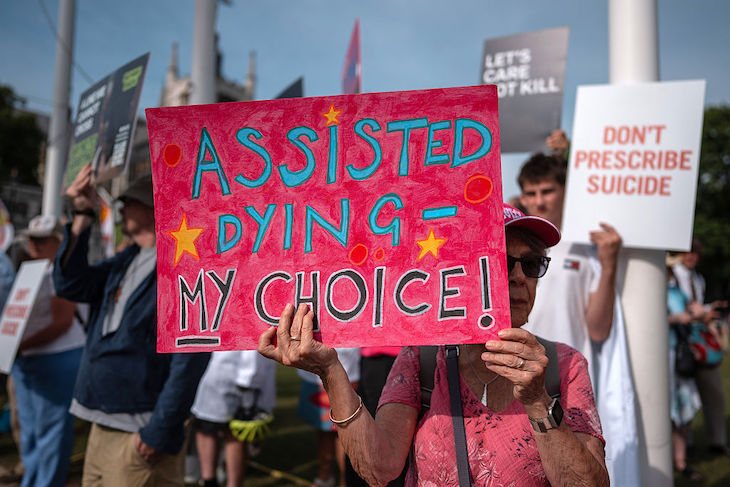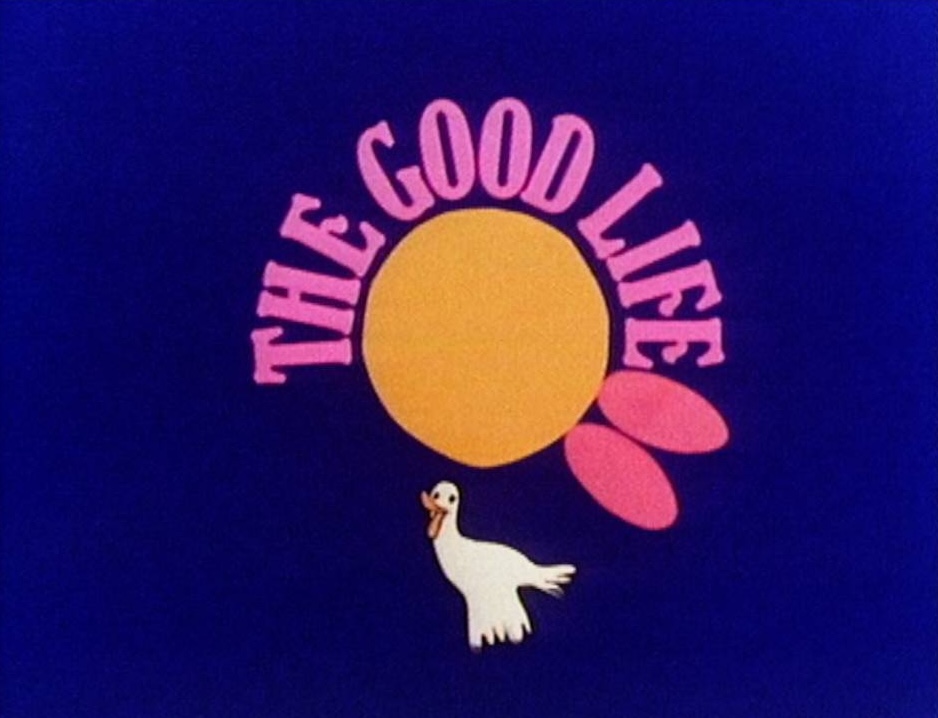If yours is a sentimental bent, you’ll have been terrifically moved by the spectacle of Jess Phillips MP giving Kim Leadbeater a big hug after the Assisted Dying Bill was passed. Ms Leadbeater has a tendency to look agonised at the best of times. When MPs paid tribute to her in the course of the debate for her compassion, she looked as if she was on the verge of bursting into tears. Now, it’ll be tears of joy – at least for her.
I should right now retract all the unkind things I have ever said about Diane Abbott
Quite how this reaction, and the hugs, can be elicited by a measure which will mean people can be given lethal drugs courtesy of the state is beyond me – because that’s actually what it entails – but you can dignify almost anything in our politics if you designate it as being motivated by compassion.
There was one contribution to the debate which will stay with me. It was made by Dr Neil Hudson, one of those Tory MPs who looks as if he’ll never rouse a rabble; he was in his previous incarnation, a vet. Almost apologetically, he declared that he had been involved in participating in euthanising various animals, large and small, in that job, and while he absolutely wasn’t comparing human beings with animals, he wanted to make the point that the substances and procedures were very similar to those used for humans. ‘The final act,’ he said, ‘doesn’t always go smoothly’. What a vista that conjures up. All very different from the talk in the chamber, which was all about dignity.
Hudson isn’t the first person to make this point. Several months ago, I talked at some length to parliament’s premier palliative care practitioner, Professor Ilora Finlay. Her verdict? Assisted suicide ‘was not a Hollywood death’. Not clean, not quick. Or as she observed, the length it takes actually for the drugs to work – from the experience of those countries which have euthanasia – varies enormously, from under half an hour to over a day.
The debate has glossed over this kind of gritty stuff. In the Lords at least, where the bill goes to next, Finlay will have the chance of pointing out how the thing works in practice. She can also say that the agonising deaths that pro-euthanasia MPs described graphically, as a sort of clincher, during the debate are not necessary with proper palliative care. It took the daughter of a male hospice nurse, Labour’s Lola McEvoy, to point out that this choice, between dying with hospice provision or without it is not universally available. Making assisted suicide a ready option will, she said, ‘deprioritise good palliative care’. Masterly understatement there.
It was, moreover, the odd philosophical basis of Leadbeater’s speech as the bill’s sponsor which was most striking. Passing over her insistence that this bill wouldn’t mean more deaths (yes, Kim, we all know that everyone must die eventually, one way or another), she waxed lyrical about the way some patients could already, all by themselves, without any supervision, opt to have their life support or ventilation turned of. Yet, she suggested, MPs were making a fuss about euthanising people who did have the benefit of a supervisory panel. Look, if we can’t tell the difference between not doing something (like not opting for artificial life support), and actually – and actively – giving someone drugs that would kill them, it’s hard to know how to argue about these things at all.
But the MPs who really undermined the cant about choice were those who talked about coercion. I should right now retract all the unkind things I have ever said about Diane Abbott, Mother of the House. She was brilliant, even though she was panicking a bit when she couldn’t read her speech on her phone (go for paper!). She was utterly convincing when she dismissed witheringly the notion that, in approved cases of assisted suicide, there would have to be no police evidence of coercion. ‘There wouldn’t be!’ she said. ‘In the family the most powerful coercion is silent.’
Abbott went on to observe that ‘if the police can’t spot coercion dealing with domestic violence, why should they spot it in assisted dying?’ Her most powerful point was to look at the assembled parliamentarians and observe that every single one of them was ‘confident in dealing with authority and institutions. But what about choice for all those who all their lives have lacked agency, particularly in a family situation?’
That needed saying. It’s one thing for Esther Rantzen to say that she’ll die in a fashion of her choosing; quite another for some poor put upon individual being made to feel that they’re selfishly taking up other people’s time and money (if we’re sinking to the level of emotional anecdote, my mother, with Parkinson’s, said just that about herself). But it’s the wretched Rantzens who dominate this debate, people who’ve never been pressurised by anyone.
There was another unexpectedly brilliant contribution on coercion, Labour’s Jess Asato, who works with victims of domestic abuse. She declared that coercion was ‘a certainty’ – it would be ‘the most vulnerable people who will experience wrongful death…as a self-perceived burden’. As she pointed out, other family members will only find out about these deaths when it’s too late. She warned that ‘there can be no room for doubt, and no room for error’. Except there will be errors, but who’ll be complaining, and how? On a Ouija board?
It’s been quite the week in parliament for life and death. The vote earlier this week – for Tonia Antoniazzi’s amendment to allow mothers to abort unborn babies up to birth without criminal sanction – was to do with one end of the life spectrum; the victims being the foetuses who will die. Today’s vote was about the end, rather than the beginning of life. But allowing doctors to give drugs to ill people to bring about their death is a similarly warped notion of choice. It’s been a good week though for the hooded man with the scythe.








Comments